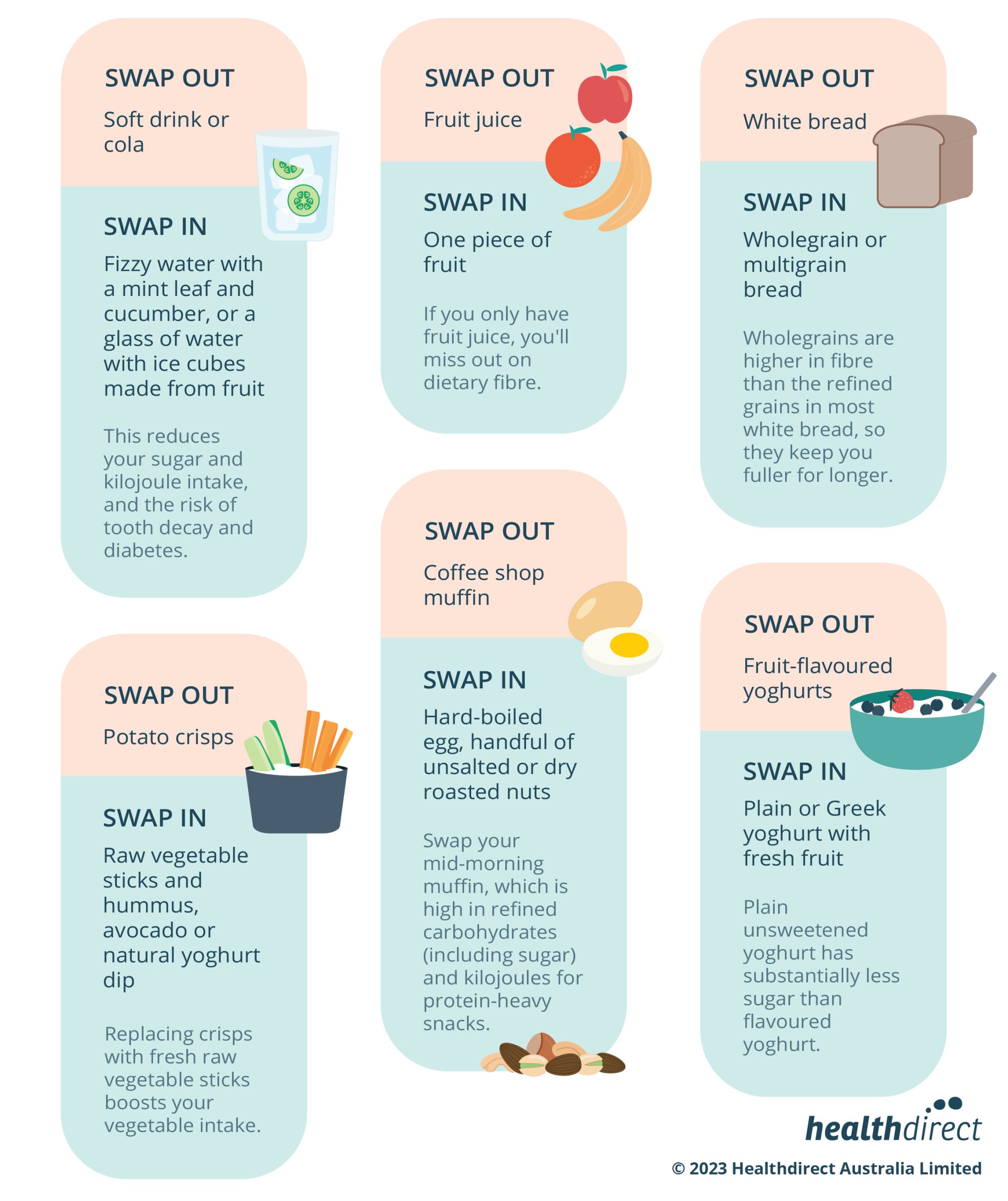
Key facts
- Healthy food swaps are simple changes you can make to your diet to replace less healthy food with more nutritious food.
- Healthy food swaps can help you to meet your health goals and improve your health in the long term.
- Follow the Australian Dietary Guidelines and plan your food shop beforehand.
- Eat a wide variety of food to get a range of nutritional benefits.
- Limit discretionary foods (ones that aren’t necessary for nutrients) to help you stay on track.
What are the benefits of healthy food swaps?
Small decisions around food choices can make a big difference to your health in the long term. Healthy food swaps are simple changes you can make to your diet to replace less healthy food with more nutritious food.
Whether you’re trying to lose weight, reduce your blood pressure or cholesterol, or just eat more healthily, food swaps can help to support your health goals.
What are some healthy food swap ideas?
Small decisions around food choices can make a big difference to your health in the long term. Here is a list of food swaps to help you make better choices for your health:
| Swaps | What’s the benefit? |
|---|---|
|
|
|
|
|
|
|
|
|
|
|
|
|
|
|
|
|
|
|
|
See this infographic for a few healthy food swap ideas.

How can I start making healthy food swaps?
You can start making healthy food swaps by planning your food shop. By choosing a wide variety of nutritious food, you will reap the health benefits. Try to follow the Australian Dietary Guidelines.
If you shop for food from the 5 food groups and limit discretionary types (ones that aren’t necessary for nutrients) you are on the right track. By not taking home unhealthy food, you are less likely to be tempted to eat it.
The 5 food groups are:
- grain (cereals)
- vegetables and legumes/beans
- lean meats and poultry, fish, eggs, tofu, nuts, seeds and legumes or beans
- milk, yoghurt, cheese or alternatives
- fruit
You should aim to eat from all 5 food groups every day. By eating different foods from each group, you will get a range of nutritional benefits.
Dietitians recommend that whole food, not individual nutrients, should be the focus of a healthy diet. But the healthiness of food is also dependent on the source and processing, among other things.
When choosing between different brands or varieties of the same food, make sure you read the nutrition information on the product labels to work out which one is best. Look out for the salt/sodium and sugar content on the labels of canned and packaged foods, as well as the kilojoules.
Choosing one brand or variety over another may make a large difference in the long term. You could swap one food for a different healthier one too or make your own healthier version.



